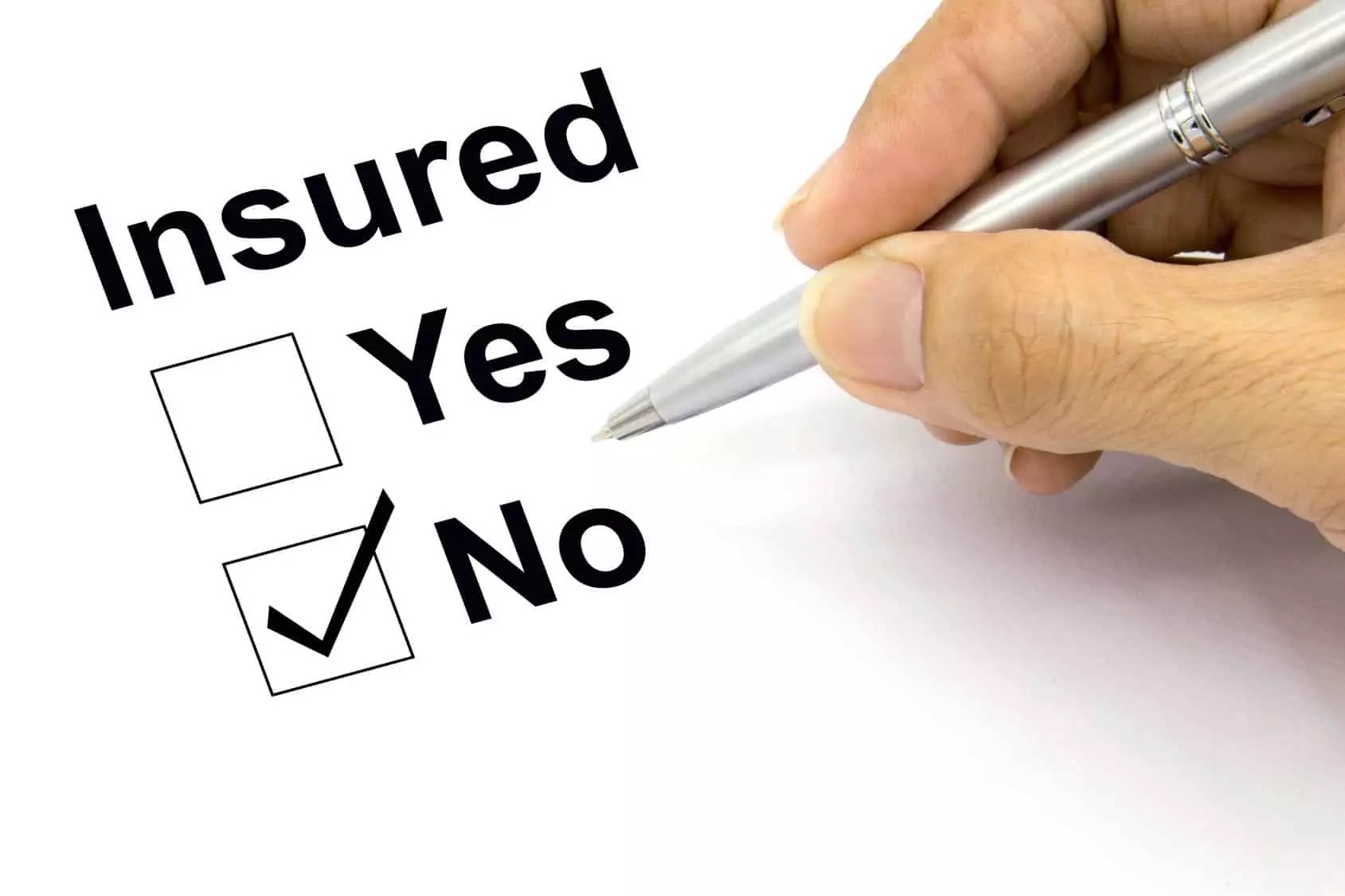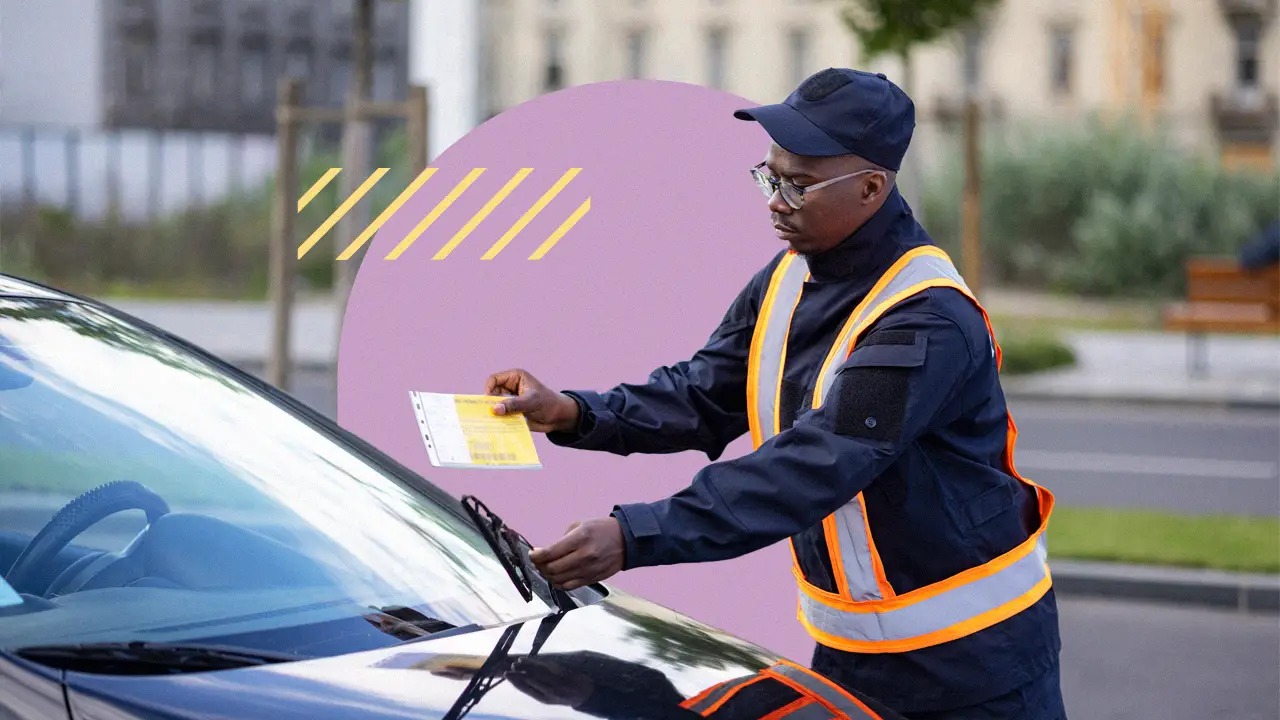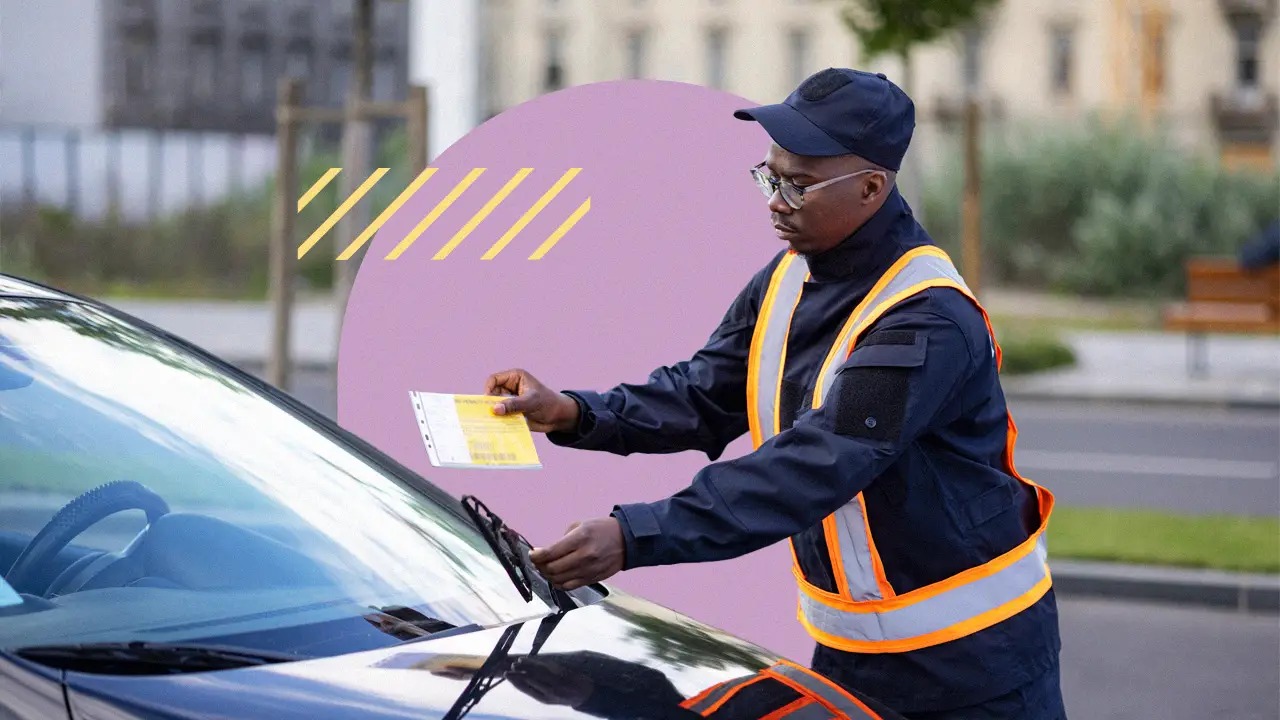

Finance
How To Get Out Of A No-Insurance Ticket
Published: November 21, 2023
Learn how to avoid costly no-insurance tickets with these helpful finance tips. Save yourself the headache and potential fines by following our expert advice.
(Many of the links in this article redirect to a specific reviewed product. Your purchase of these products through affiliate links helps to generate commission for LiveWell, at no extra cost. Learn more)
Table of Contents
Introduction
No-insurance tickets can be a daunting and costly experience for any driver. Whether you simply forgot to renew your insurance or were caught driving without coverage, facing the consequences of a no-insurance ticket can be overwhelming. However, it is essential to understand that there are steps you can take to mitigate the situation and potentially avoid the full penalties that come with such a ticket.
In this article, we will guide you through the process of dealing with a no-insurance ticket. We will help you understand the implications of such a ticket, provide guidance on evaluating your options, gathering evidence, consulting with an attorney, preparing for court, and presenting your case. We will also discuss the possibility of negotiating a reduced penalty and explore alternatives to appearing in court.
Keep in mind that every situation is unique, and the strategies outlined in this article may not apply to all cases. It is always advisable to consult with an attorney who specializes in traffic violations and insurance law to ensure you receive the best possible guidance for your specific circumstances.
Now, let’s delve into the process of getting out of a no-insurance ticket and regaining your peace of mind on the road.
Understanding No-Insurance Tickets
No-insurance tickets, also known as driving without insurance tickets, are issued to drivers who are caught operating a vehicle without valid auto insurance coverage. These tickets are serious infractions and carry significant penalties.
Driving without insurance is not only a violation of the law in most jurisdictions, but it also poses a risk to the driver, passengers, and other road users. Auto insurance is designed to provide financial protection in the event of an accident or damage to property. Without insurance, you are personally liable for any damages or medical expenses that may arise as a result of an accident.
When you receive a no-insurance ticket, it usually means that a law enforcement officer has determined that you are operating a vehicle without the required insurance coverage. The penalties for no-insurance tickets vary depending on the jurisdiction, but they can include hefty fines, license suspension, vehicle impoundment, and even potential jail time in some cases.
It is important to understand that ignorance of your insurance coverage status is not a valid defense. It is your responsibility as a driver to ensure that you have the required auto insurance coverage at all times. However, there are certain situations where a driver may be mistakenly issued a no-insurance ticket. For example, if you recently switched insurance providers and the information has not yet been updated in the system, you may receive a ticket despite being insured.
It is crucial to act promptly upon receiving a no-insurance ticket. Ignoring or procrastinating can lead to further complications and penalties. By understanding the consequences and taking the appropriate steps, you can increase your chances of resolving the situation in a favorable manner.
Evaluating Your Options
When faced with a no-insurance ticket, it is essential to carefully evaluate your options before taking any further steps. Here are some key considerations to keep in mind:
- Verify your insurance coverage: Before taking any action, double-check your insurance coverage and ensure that it was active at the time of the ticket. Contact your insurance provider to confirm the status of your policy.
- Review the ticket: Carefully read the details on the ticket, including the date, time, and location of the offense. Look for any errors or discrepancies that could potentially help in your defense.
- Assess the penalties: Research the potential penalties associated with a no-insurance ticket in your jurisdiction. This will give you an idea of what you may be facing and help you make informed decisions moving forward.
- Evaluate your driving record: Consider your driving record and any previous violations. If you have a clean driving history, it may work in your favor when presenting your case or negotiating a reduced penalty.
- Consider legal representation: Depending on the severity of the ticket and your comfort level with navigating the legal system, it may be wise to consult with an attorney who specializes in traffic violations and insurance law. They can provide expert guidance tailored to your specific situation.
- Weigh the cost-benefit analysis: Assess the financial implications of fighting the ticket versus accepting the penalties. Keep in mind that legal fees, court costs, and potential insurance premium increases should be factored into your decision-making process.
Remember, each case is unique, and what works for one person may not work for another. It is crucial to evaluate your options and make an informed decision that aligns with your specific circumstances and goals. Seeking professional advice can provide clarity and increase your chances of obtaining a favorable outcome.
Gathering Evidence
When dealing with a no-insurance ticket, gathering evidence can significantly strengthen your case and increase the likelihood of a positive outcome. Here are some important steps to take when collecting evidence:
- Obtain proof of insurance: If you were insured at the time of the ticket, gather all relevant documents to validate your coverage. This may include insurance policy paperwork, insurance cards, or any other documentation provided by your insurance provider.
- Retrieve payment records: If you made recent insurance payments but were issued a ticket due to a delay in processing, gather evidence of those payments. This can help establish that you took the necessary steps to maintain coverage.
- Secure witness statements: If there were any witnesses present during the incident, try to obtain their contact information and ask if they would be willing to provide a statement supporting your case. Their testimony could be invaluable in disproving the allegations made against you.
- Collect relevant documents: Gather any additional documentation that may support your defense. This could include vehicle maintenance records, service receipts, or any other pertinent documents that demonstrate your commitment to being a responsible and insured driver.
- Photographic evidence: If applicable, take photographs of your vehicle’s state at the time of the ticket. This can help prove that your vehicle was not actively being operated and was parked at the time of the alleged offense.
- Gather character references: If you have a solid reputation within your community or have received recognition for your responsible behavior, consider gathering character references from individuals who can vouch for your credibility and responsible nature as a driver.
It is important to note that not all types of evidence may be admissible in court. Check with your attorney to ensure that the evidence you gather is relevant, permissible, and strengthens your defense.
By gathering solid evidence, you can build a compelling case to contest the no-insurance ticket and present a strong defense in court. Remember to organize and properly document all evidence to ensure its effectiveness in supporting your case.
Consultation with an Attorney
When facing a no-insurance ticket, it is highly recommended to consult with an attorney who specializes in traffic violations and insurance law. An experienced attorney can provide invaluable guidance and support throughout the legal process. Here are some reasons why consulting with an attorney is beneficial:
- Legal expertise: Attorneys have a deep understanding of traffic laws and insurance regulations. They can assess the specific details of your case and provide personalized advice and strategies to help you navigate the legal system.
- Case evaluation: An attorney will thoroughly evaluate your case, including the evidence, circumstances, and any potential loopholes or legal defenses. They will provide an honest assessment of the strength of your case and the potential outcomes.
- Defense strategies: Based on their expertise and knowledge, an attorney can develop a strong defense strategy tailored to your situation. They will identify the most effective arguments and legal avenues to challenge the no-insurance ticket and minimize the penalties.
- Negotiation skills: Attorneys are skilled negotiators who can engage with prosecutors and court officials on your behalf. They can present compelling arguments and negotiate for reduced penalties or alternative resolutions, potentially saving you time, money, and stress.
- Confidence in the courtroom: Facing a legal proceeding can be intimidating, but having an attorney by your side can boost your confidence. They will handle the legal procedures, documentation, and courtroom etiquette, allowing you to focus on presenting your case.
- Stay updated on the law: Traffic and insurance laws can change, and it can be challenging to stay informed on the latest regulations. Attorneys keep up-to-date with legal changes and can apply their knowledge to your case, ensuring you are aware of any recent developments that may impact your defense.
While hiring an attorney involves an additional cost, their expertise can greatly improve your chances of obtaining a favorable outcome. They can guide you through the complex legal process, provide professional advice, and advocate for your rights and interests.
Remember to choose an attorney who has experience handling traffic violations and insurance-related cases. Seek recommendations, read reviews, and schedule consultations to find the attorney who is the best fit for your needs and budget.
Preparing for Court
When dealing with a no-insurance ticket, proper preparation is crucial to present a strong defense in court. Here are some essential steps to help you prepare for your court hearing:
- Review the applicable laws: Familiarize yourself with the traffic laws and insurance regulations related to your case. Understanding the specific statutes and requirements will enable you to build a solid defense strategy.
- Organize your documents: Gather all relevant documents, including your insurance policy, payment receipts, witness statements, and any other evidence you plan to present in court. Ensure that these documents are properly organized for easy reference during the hearing.
- Prepare your testimony: Practice presenting your side of the story to ensure clarity and coherence. Anticipate potential questions from the prosecutor or judge and prepare concise and persuasive responses that support your defense.
- Consider expert witnesses: In complex cases or situations where technical expertise is required, such as disputing the accuracy of a radar gun reading, consult with an expert witness who can provide testimony to support your defense. This may require additional preparation and coordination.
- Dress appropriately: When appearing in court, dress professionally and respectfully. A well-groomed appearance demonstrates your seriousness and respect for the legal process.
- Arrive early: Plan to arrive at the courthouse well in advance of your scheduled hearing. This will give you time to familiarize yourself with the surroundings, mentally prepare, and address any last-minute concerns or questions with your attorney, if applicable.
- Stay composed and respectful: While in court, maintain a calm and respectful demeanor. Follow the judge’s instructions, address them as “Your Honor,” and avoid any disruptive behaviors. A composed and respectful attitude will work in your favor.
Preparing for court can be a complex process, and it is crucial to listen to the advice and guidance of your attorney throughout. They can provide insights specific to your case and ensure that your defense strategy aligns with legal requirements.
Remember, each court hearing is an opportunity to present your case and advocate for a fair resolution. By being well-prepared, organized, and professional, you increase your chances of achieving a positive outcome in court.
Appearing in Court
When facing a no-insurance ticket, appearing in court is a crucial step in resolving the matter. Here are some important considerations to keep in mind when appearing in court:
- Arrive prepared and on time: Make sure to arrive at the courthouse early, allowing yourself ample time to go through security, find the correct courtroom, and settle any nerves. Being punctual demonstrates respect for the legal process.
- Follow courtroom etiquette: In court, it is essential to adhere to proper courtroom etiquette. Address the judge as “Your Honor” and wait for your turn to speak. Avoid interrupting others and maintain a respectful and composed demeanor throughout the proceedings.
- Listen and follow instructions: Pay close attention to the judge, prosecutor, and any witnesses who testify. Listen carefully and follow their instructions. If you are unclear about something, do not hesitate to ask for clarification.
- Present your case confidently: When it is your turn to present your case, stay calm and composed. Clearly articulate your defense, referring to the evidence and documentation you have prepared. Speak confidently, staying focused on the key points that support your position.
- Answer questions truthfully: If questioned by the prosecutor, judge, or opposing counsel, answer truthfully and directly. It is crucial to maintain honesty and credibility throughout the proceedings.
- Respectfully challenge evidence: If the opposing counsel presents evidence that you believe is inaccurate or invalid, calmly and respectfully dispute it. Present your counterarguments based on the evidence and legal principles, maintaining a professional tone.
- Address the judge’s concerns: If the judge raises any concerns or doubts during the hearing, address them promptly and clearly. Provide explanations or additional evidence as necessary to alleviate any doubts.
- Remain composed during verdict: After presenting your case, the judge will deliver the verdict. Regardless of the outcome, it is crucial to remain composed and respectful. Thank the judge for their time, and if necessary, ask any questions regarding the next steps in the process.
Remember that appearing in court can be an intimidating experience, but being well-prepared, respectful, and composed will help you navigate the proceedings more effectively. Follow the guidance of your attorney and trust in your preparation to present your case persuasively and seek a fair resolution.
Keep in mind that the judge will make their decision based on the evidence and arguments presented. Accept the outcome with grace and dignity, knowing that you have done your best to present your case in the most favorable light.
Presenting Your Case
Presenting your case effectively in court is crucial when dealing with a no-insurance ticket. Here are some key strategies to help you present your case confidently and persuasively:
- Begin with an opening statement: Start your presentation with an introductory statement that provides an overview of your defense. Summarize the key points you will be addressing and establish the grounds for challenging the no-insurance ticket.
- Present clear and concise arguments: Structure your presentation in a logical manner. Clearly articulate each argument, citing relevant evidence and legal principles to support your position. Be concise and avoid unnecessary elaboration.
- Highlight inconsistencies or errors: Point out any inconsistencies or errors in the prosecution’s evidence or testimony. Use your evidence and documentation to challenge the validity or accuracy of their claims.
- Refer to applicable laws: Support your arguments by referencing the specific traffic laws and insurance regulations that are relevant to your case. This demonstrates your knowledge of the law and strengthens your arguments.
- Use visual aids if necessary: If you have photographs, diagrams, or other visual aids that support your case, consider presenting them during your presentation. Visual representation can often have a stronger impact than words alone.
- Address counterarguments: Anticipate and address potential counterarguments or objections that the prosecutor may raise. Present compelling rebuttals to deflate any points of contention and reinforce the strength of your defense.
- Confidently assert your credibility: Establish your credibility by presenting your driving record, insurance payment history, and any other evidence that demonstrates your responsible behavior as a driver. This helps to counter any negative assumptions about your character.
- Conclude with a strong closing statement: Wrap up your presentation with a powerful closing statement that reinforces your main arguments and emphasizes the importance of a fair resolution. Restate your key points and leave a lasting impression on the judge.
During your presentation, maintain a calm and professional demeanor. Speak clearly, making eye contact with the judge and the opposing counsel. Avoid becoming defensive or confrontational, as this can weaken your case. Instead, focus on presenting your arguments persuasively and supporting them with compelling evidence.
Remember, the goal is to convince the judge of your innocence or to mitigate the penalties associated with the no-insurance ticket. By presenting your case confidently and effectively, you increase the chances of achieving a favorable outcome.
Negotiating a Reduced Penalty
When dealing with a no-insurance ticket, it is possible to negotiate with the prosecution to seek a reduced penalty. Here are some strategies to help you navigate the negotiation process:
- Consult with your attorney: Before engaging in any negotiations, consult with your attorney to understand the potential options available to you. They can provide essential guidance based on their expertise and knowledge of local laws.
- Review the evidence: Carefully examine the evidence against you to identify any weaknesses or inconsistencies. If you have evidence that supports your innocence or mitigates the severity of the offense, present it to the prosecutor during negotiations.
- Highlight mitigating factors: Identify any mitigating factors that may lessen the severity of the offense. For example, if you can demonstrate that the period without insurance was brief, due to a change in providers or a clerical error, it may help in negotiating a reduced penalty.
- Show proof of corrective action: If you have obtained valid insurance coverage since receiving the ticket, provide proof to the prosecutor. This demonstrates your commitment to rectifying the situation and acting responsibly as a driver.
- Express genuine remorse: During negotiations, convey your sincere regret for driving without insurance and acknowledge the seriousness of the offense. Expressing remorse and taking responsibility can positively influence the prosecutor’s willingness to reduce the penalty.
- Be flexible and open to agreements: When negotiating, be willing to consider alternative arrangements, such as attending defensive driving courses or community service, in place of or in addition to the standard penalties. Showing a willingness to work towards a resolution can help in reaching a favorable outcome.
- Highlight your good driving record: If you have a clean driving record, emphasize this point during negotiations. Demonstrating that you are typically a responsible and law-abiding driver can help in making a case for a reduced penalty.
- Seek professional negotiation: If negotiations become challenging or progress slowly, consider having your attorney engage in direct negotiation with the prosecutor. Their expertise and experience can potentially lead to more favorable outcomes.
Remember that negotiations are not guaranteed to result in a reduced penalty, and the final outcome depends on various factors, including the strength of your defense and the discretion of the prosecution. Be prepared for different scenarios and outcomes, and trust in your attorney’s advice throughout the negotiation process.
By presenting compelling evidence, highlighting mitigating factors, and expressing genuine remorse, you increase the possibility of negotiating a reduced penalty for the no-insurance ticket.
Exploring Alternatives to Court
While appearing in court is the traditional route for resolving a no-insurance ticket, there are alternative options to consider. Exploring these alternatives may offer a more efficient and potentially favorable outcome. Here are some alternatives to court that you can explore:
- Deferred adjudication or diversion programs: Some jurisdictions offer deferred adjudication or diversion programs for certain traffic offenses. These programs allow you to complete specific requirements, such as attending defensive driving courses or community service, in exchange for having the charges dismissed or reduced.
- Settlement conferences or mediation: In certain cases, you may have the option to participate in a settlement conference or mediation session. This informal process involves negotiation and discussion with the opposing party, facilitated by a neutral mediator, to reach a mutually agreeable resolution.
- Plea bargaining: In some instances, the prosecution may be open to plea bargaining. This involves negotiating with the prosecutor to plead guilty to a lesser offense or reduced penalties in exchange for giving up certain rights, such as the right to trial.
- Traffic school or defensive driving courses: In some jurisdictions, completing a traffic school or defensive driving course can result in a reduction of fines or point deductions from your driving record. This option allows you to improve your driving skills and potentially mitigate the impact of the no-insurance ticket.
- Appealing to an insurance provider: If you rectified the insurance issue promptly after receiving the ticket, you may consider appealing to your insurance provider and requesting their assistance in resolving the matter. They may be able to provide guidance or advocate on your behalf with the court.
- Payment plans or financial hardship assistance: If the financial burden of the penalties is a concern, inquire about the possibility of setting up a payment plan or seeking financial hardship assistance. Some jurisdictions may offer options to make the payments more manageable based on your current circumstances.
It is essential to research and understand the specific options available in your jurisdiction. Consult with your attorney to determine which alternative may be the most suitable for your case.
Keep in mind that each alternative comes with its own requirements and potential benefits. Assess the advantages and disadvantages of each option to determine which aligns best with your circumstances and goals.
Exploring alternatives to court can offer a quicker resolution, avoid the uncertainties of a trial, and potentially result in a more favorable outcome for your no-insurance ticket.
Conclusion
Dealing with a no-insurance ticket can be a challenging and stressful experience. However, by understanding the process and taking strategic steps, you can work towards a resolution that minimizes the impact of the ticket on your driving record and finances. Here’s a recap of the key points discussed in this article:
Understanding the implications of a no-insurance ticket is crucial. It is not only a violation of the law but also puts you at financial risk in the event of an accident or damage to property. Ignorance of your insurance coverage status is not a valid defense, so it’s important to take responsibility and address the ticket promptly.
Evaluating your options is essential to determine the best course of action. Verify your insurance coverage, review the ticket details, assess potential penalties, and consider consulting with an attorney who specializes in traffic violations and insurance law.
Gathering evidence is vital for building a strong defense. Collect proof of insurance, payment records, witness statements, and any other relevant documents or visual aids that support your case.
Consulting with an attorney can provide invaluable legal expertise, case evaluation, defense strategies, negotiation skills, and confidence in the courtroom. Their guidance and support are instrumental in navigating the complexities of the legal process.
Preparing for court involves organizing your documents, practicing your testimony, and familiarizing yourself with courtroom etiquette. Arrive early, stay composed, follow instructions, and present your case confidently, addressing any counterarguments or concerns raised by the judge or prosecutor.
Negotiating a reduced penalty may be an option worth exploring. Consult with your attorney, review the evidence, highlight mitigating factors, express remorse, and be open to alternative resolutions. Aim to reach a mutually agreeable outcome with the prosecution.
Finally, consider alternatives to court, such as deferred adjudication programs, settlement conferences, plea bargaining, or completing traffic school. Each option presents its own benefits and requirements, so weigh them carefully to find the best fit for your situation.
Remember, the information presented in this article is general guidance, and it is crucial to consult with an attorney to receive personalized advice that considers your specific circumstances and local laws.
Dealing with a no-insurance ticket may feel overwhelming, but with the right approach and support, you can navigate the process successfully and strive for the best possible outcome. Stay proactive, informed, and advocate for your rights as you work towards resolving the ticket and getting back on the road with proper insurance coverage.














